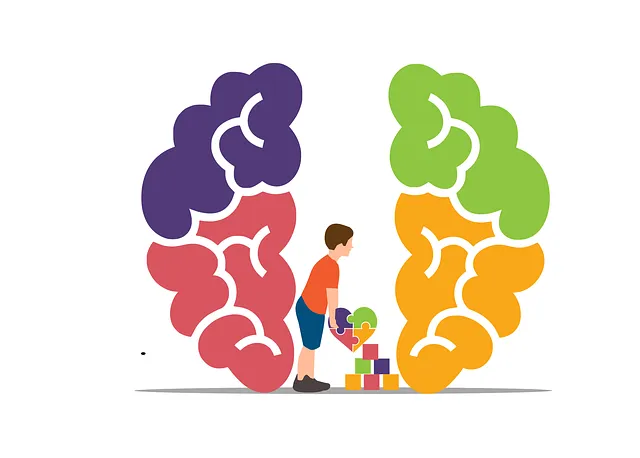The Denver Kaiser Permanente Guide empowers individuals with mental illness by demystifying diagnoses and promoting self-care. Navigating their behavioral health services begins with a primary care provider assessment, followed by tailored support through community outreach and risk management. Treatment options include therapy, medication, and trauma support, fostering recovery tools in a supportive environment. Community groups and educational workshops further aid recovery by reducing stigma and building connections. Success is measured using both quantitative and qualitative methods, focusing on symptom reduction, coping skills, and improved quality of life.
Mental illness diagnosis and treatment can be overwhelming. The Denver Kaiser Permanente guide offers invaluable insights into understanding mental health conditions, providing a roadmap for navigating behavioral health services. This comprehensive step-by-step process ensures individuals receive appropriate care. Learn about common treatment options, including the Kaiser Permanente approach, and discover strategies to build a supportive network. By utilizing these resources, you can enhance your journey towards recovery while minimizing challenges associated with Denver Kaiser Permanente behavioral health services.
- Understanding Mental Health Diagnoses: Denver Kaiser Permanente Guide
- Navigating Behavioral Health Services: Step-by-Step Process
- Common Treatment Options Explained: Kaiser Permanente Approach
- Building a Supportive Network: Resources for Recovery
- Measuring Success and Relapse Prevention Strategies
Understanding Mental Health Diagnoses: Denver Kaiser Permanente Guide

Understanding Mental Health Diagnoses: A Valuable Resource from Denver Kaiser Permanente
Navigating mental illness is a complex journey, often beginning with understanding one’s condition. The Denver Kaiser Permanente Guide serves as an invaluable tool for individuals seeking clarity and direction in this process. This resource provides a comprehensive overview of various mental health diagnoses, helping patients to recognize their unique challenges and begin their path to recovery. By demystifying different conditions, it empowers individuals to actively participate in their care, fostering self-esteem improvement and enabling them to explore effective stress reduction methods.
The guide delves into common disorders, offering insights into symptoms, causes, and available treatment options. This knowledge is crucial for making informed decisions about one’s mental health journey. Moreover, it encourages the adoption of healthy self-care practices, which are essential for managing symptoms and enhancing overall well-being. With a focus on behavioral health services, Denver Kaiser Permanente equips individuals with the understanding needed to navigate their mental health landscape effectively.
Navigating Behavioral Health Services: Step-by-Step Process

Navigating Denver Kaiser Permanente behavioral health services involves a structured process designed to ensure comprehensive care. The journey begins with recognizing the need for help and reaching out to a primary care provider who can assess your symptoms and guide you towards specialized services. This initial step is crucial, as it helps in accurately diagnosing your condition and connecting you with the right experts.
Next, individuals often engage with our Community Outreach Program, which offers valuable resources and support networks tailored to their unique needs. This program facilitates access to Self-Care Routine Development for Better Mental Health, enabling individuals to take proactive measures in managing their well-being. Furthermore, risk management planning is an integral part of the process, ensuring that mental health professionals are equipped to handle potential challenges and provide safe, effective treatment.
Common Treatment Options Explained: Kaiser Permanente Approach

At Denver Kaiser Permanente, we offer a comprehensive range of behavioral health services designed to address various mental health conditions. Our approach emphasizes a tailored, patient-centric care model that includes both traditional therapy and innovative treatment modalities. Common treatment options for mental illness range from talk therapies like cognitive behavioral therapy (CBT) and dialectical behavior therapy (DBT), which help individuals manage symptoms and develop coping strategies, to medication management led by expert psychiatrists.
In addition to these core services, Denver Kaiser Permanente focuses on trauma support services, communication strategies, and social skills training as integral parts of our holistic treatment plan. We understand that healing from mental illness often involves addressing underlying trauma and improving interpersonal communication. Our specialized programs are developed to empower patients with the necessary tools for successful recovery, fostering a supportive environment where they can navigate their journey towards improved mental well-being.
Building a Supportive Network: Resources for Recovery

Building a supportive network is an integral part of navigating mental illness and fostering recovery. Denver Kaiser Permanente behavioral health services offer a range of resources tailored to meet individual needs. These include access to specialized therapists, support groups, and educational workshops that focus on trauma support services, stress management techniques, and mental illness stigma reduction efforts. By connecting individuals with these valuable resources, patients can find communities that understand their struggles, providing them with the strength and tools needed for a healthier, happier life.
In addition to professional help, there are numerous community organizations dedicated to enhancing mental wellness. These initiatives often provide safe spaces where individuals can share experiences, engage in peer support, and participate in activities promoting self-care. By leveraging these resources, Denver residents can create powerful connections that contribute to their journey towards recovery.
Measuring Success and Relapse Prevention Strategies

Measuring success in mental illness management is a multifaceted process. At Denver Kaiser Permanente behavioral health services, we utilize a combination of quantitative and qualitative methods to assess progress. This includes tracking key indicators like symptom severity, medication adherence, and quality of life metrics. Additionally, we foster emotional healing processes through regular communication strategies tailored to individual needs. Our Mental Wellness Coaching Programs Development focuses on empowering individuals with coping mechanisms and relapse prevention skills.
Effective relapse prevention starts with understanding triggers and developing personalized plans. We teach practical communication strategies that enable individuals to express their needs and boundaries effectively. By fostering open dialogue, we strengthen support networks and promote proactive mental wellness management. Through these comprehensive approaches, Denver Kaiser Permanente behavioral health services aims to enhance long-term recovery, ensuring individuals have the tools to maintain mental wellness and lead fulfilling lives.
Navigating mental illness is a complex journey, but with the right resources, it can lead to meaningful recovery. The Denver Kaiser Permanente guide on understanding mental health diagnoses provides a solid foundation for individuals seeking help. By following the step-by-step process of navigating behavioral health services, one can access effective treatment options like those offered by Kaiser Permanente. Building a supportive network and adopting relapse prevention strategies are crucial components to sustaining mental well-being. Remember, with dedicated support and the right tools, managing and overcoming mental illness is achievable. Let’s empower ourselves and others through education and accessible Denver Kaiser Permanente behavioral health services.






